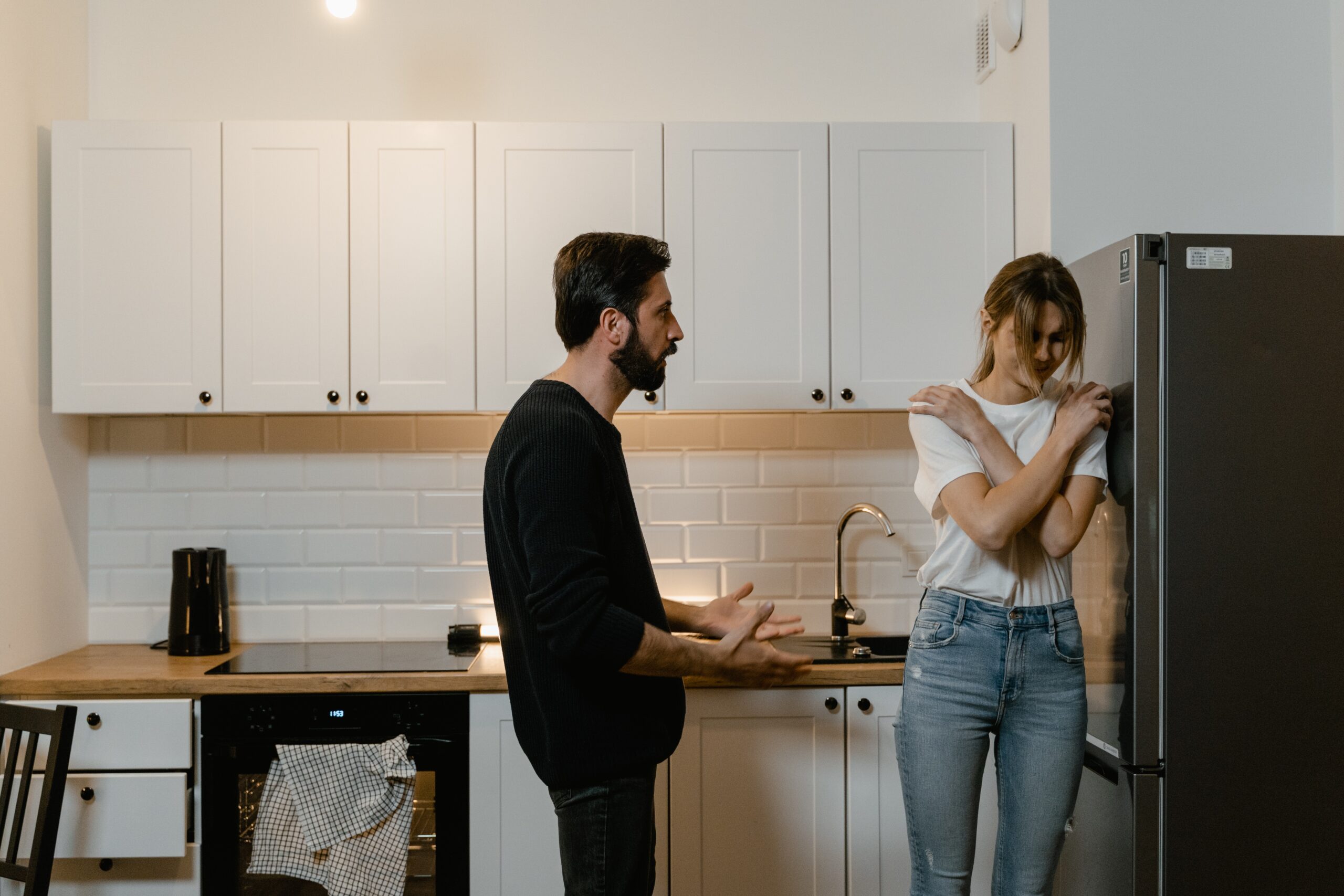| ― Committing to an Inpatient Drug or Alcohol Rehab? |
| ― Denial |
| ― Codependency |
| ― Family and/or Work Conflicts |
| ― Are You Ready to Commit to Couples Rehab? |
If you and your partner have been struggling with whether or not couples rehab is the right choice for you, there are going to be a handful of questions you’ll want to ask yourselves and each other before you commit to a final decision.
Key Takeaways
- Many couples who struggle with substance abuse disorder will try various forms of help before considering inpatient treatment, such as couples therapy, individual therapy and outpatient therapy before committing to an inpatient program.
- Addiction and substance abuse are major problems in the United States, with as many as 90 percent of people who need inpatient drug or alcohol rehab not receiving it.
- Though there are many reasons a couple may not seek therapy for their substance abuse disorder, some of the most common reasons are denial, codependency and family and work conflicts.
Anyone who has ever struggled with issues in their relationship or issues with addiction know that making the choice to seek professional help is never easy, particularly if “professional help” looks like spending time in an inpatient rehab center.
Maybe you and your partner have tried some other measures first.
Many people, before deciding to fully commit to an inpatient rehab program, will try marriage counseling or some sort of couples therapy first. They may think that their issues can be resolved by talking through them with a therapist and learning to have more effective communication with one another.

This is particularly true when one person in the relationship is convinced that they don’t really have a substance abuse problem and that their partner is the one with the issue.
They may hope that – when they seek couples therapy – a trained counselor can help shed light on the issues and get their partner to slow down their substance use or quit altogether.
They also hope that maybe by dealing with the relationship issues they will also deal with the substance abuse issues as well.
Another measure that many couples will try before they commit to an inpatient treatment program may be to first commit to an outpatient treatment program.
Outpatient programs allow one or either partners to seek treatment for their drug or alcohol addiction while still being able to work, spend time with their family and fulfill their community responsibilities.
A good outpatient treatment program will most likely still incorporate couples therapy in the plan as well as incorporate individual therapy as well.
Many outpatient programs also encourage your family members to attend family therapy – even for those who are not struggling with an addiction (but have more than likely been greatly affected by it.)
They will more than likely also encourage you to engage in group therapy sessions as well.
Whether it’s couples counseling, family therapy, group therapy or some other sort of outpatient program, any of these may prove to be what you and your partner need to begin the road to addiction recovery and point you in the right direction.
Why is that?
Because drug and/or alcohol addiction is one of the hardest things for any individual or couple to be able to beat.
In fact, the Centers for Disease Control and Prevention estimates that – as of 2021 – an average of more than 300 Americans die each day from a drug or alcohol overdose and that excessive drinking is a leading cause of preventable death in the United States.
While addiction and substance abuse are undoubtedly major problems in the United States, the study also found that as many as 90 percent of people who need inpatient drug or alcohol rehab do not receive it.
The question is…why not?
Committing to an Inpatient Drug or Alcohol Rehab?
If you and your partner have tried other methods to end your addiction to drugs and/or alcohol and have not had success, you are definitely not alone. Many couples may search for couples rehab near me or couples rehab California but may not find exactly what you’re looking for.
Despite the growing prevalence of drug and alcohol addiction in the United States, very few Americans get the treatment they need in order to live a life truly free of substance abuse.

Sometimes the reasons for this can be quite complex, like there may be ongoing mental illness or a history of drug and alcohol abuse that goes back for multiple generations. Other times the reasons are much more simple.
But knowing some of the biggest reasons why people struggle to get help with their addiction may help you and your partner recognize that your roadblocks might be more common than you think.
And that there are ways to move all of them out of your path toward sobriety and a life free from substance abuse.
Denial
Perhaps the biggest reason that many people state for not going to rehab is our reason for not doing many of the things we probably need to do…denial.
How many times have you or your partner said the following words?
“I don’t really have a problem.”
“I can stop whenever I want to.”
“I only use/drink when I’m tired/hurt/relaxing/celebrating.”
“Once my life is less stressful, I’ll slow down.”
“Everyone else is doing it.”
Do these sound familiar? Have you found yourself or your partner saying one of more of these phrases and truly believing it?
Denial is one of the biggest reasons that people don’t get the help they need with their drinking or drug use. Let’s face it…it’s never easy to admit you might actually have a problem, in part because you may not really want to quit your addiction, even if you know you’d like to slow down.
Denial also comes into play when we are afraid of what might happen once we admit what is really going on.
Denial serves as a defense mechanism that allows us to not have to recognize or acknowledge certain types of facts or experiences.
Denying we have a problem with something is a way that we can protect ourselves from the discomfort or anxiety that might result once we admit that there is a problem in front of us.
Substance abuse thrives in denial.
For so many people who are struggling with it, denial will keep them in their struggle for years, and not allow them to get the appropriate substance abuse treatment that they need to live a whole and meaningful life.
Codependency
Another big factor for those who don’t seek treatment for their drug and alcohol issues is that of codependency.
Codependency is when two or more people are in an unhealthy relationship that is bringing either or all of them harm, but they don’t recognize it.
In a codependent relationship, one partner will usually have strong emotional needs or physical needs, and the other person (or persons) will spend a significant amount of their time responding to those needs, often to the detriment of that person’s emotional, physical and even financial life.
Not only that, but when codependency is involved in a relationship, it can result in a challenging spiral which leads to the codependent partner caring for and enabling the other person’s challenges, which then keeps the whole circular dysfunction of the relationship going.
Oftentimes, when an addiction is involved in a relationship, codependency will be prevalent. And – if both people in the relationship are struggling with an addiction, this means that both people may be enabling the other person’s poor choices.
In a situation like this one, it will be difficult for either person to see how destructive their behavior is to themselves or others, since their primary partner will be struggling to see this as well.

When a couple is considering inpatient treatment for their substance abuse issues, they will certainly benefit from a substance abuse treatment program that can help them identify their codependency issues and recognize how their behaviors are enabling the other person.
That said, codependency may keep the couple from seeking treatment in the first place.
Family and/or Work Conflicts
It probably goes without saying that any couple who is considering seeking inpatient treatment for their drug and alcohol problems will have family and work conflicts that may interfere.
Most inpatient rehab facilities will require that a couple stay onsite at the facility 24 hours a day for at least 30 days.
Depending on the severity of your substance disorder and/or your mental health, some programs may suggest a stay of 60 to 90 days as well.
For most adults, spending one to three months away from their family and work obligations may sound unrealistic.
They may worry that the time away will only cause more stress and turmoil upon their return.
Though a person may have family and/or friends who would be willing to step in and help with the family obligations, it may be hard to imagine being away from children and/or other family needs for an extended period of time.

And though there are laws in place through the Family Medical Leave Act that protect an employee who needs to seek treatment, it may still be hard to leave a work situation, knowing that another coworker will have to take on additional tasks.
If a couple is in need of inpatient care for their addiction and/or mental health issues, family and work obligations should not prevent them from getting the help they need. Unfortunately, these obligations are often too great for a couple to be able to make the decision to finally go to rehab.
Are You Ready to Commit to Couples Rehab?
If you and your partner have been able to identify some of the roadblocks that are keeping both of you from starting down the road to recovery, reach out to us for help.
At The House of the Rising Son, we have skilled medical staff, social workers and mental health professionals who can help both you and your partner navigate those roadblocks and come up with a course of action that will work best for both of you.
Not only that, but our Lake Forest, California location is conveniently located near Los Angeles, where we are able to attract the best of the best to our staff while also providing our patients an easily accessible and beautiful place to begin their recovery journey.
If you and your partner are ready to remove the roadblocks that are keeping you from a life free of alcohol and drugs, then please reach out to one of our qualified intake specialists today. New clients are welcome to call 24 hours a day, 365 days out of the year.
Healing is only a phone call away.


